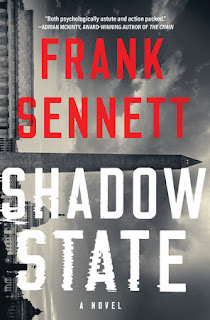 writing her own stories at a young age. When she's not writing or reading, Flores enjoys traveling, dancing ballet and jazz, practicing trapeze and contortion, and visiting parks and trails around San Francisco, where she currently resides. She is the author of Diamond City and Shadow City.
writing her own stories at a young age. When she's not writing or reading, Flores enjoys traveling, dancing ballet and jazz, practicing trapeze and contortion, and visiting parks and trails around San Francisco, where she currently resides. She is the author of Diamond City and Shadow City.
Flores applied the Page 69 Test to her new novel, The Witch and the Vampire, and reported the following:
On page 69 of my book, my fire witch character, Kaye, is about to cross the magical barrier separating her town from the dangerous forest where vampires reside. She examines the barrier and makes a plan to capture the vampire she’s tracking down; Ava, the other main character.Visit Francesca Flores's website.
The Page 69 Test doesn’t work very well for my book, but it’s not a complete failure. There is plenty of good worldbuilding on this page, so if a reader loves getting immersed into a new fantasy world, they’d be very intrigued by it. On the other hand, there’s no dialogue or action on this particular page, so readers who want action might think the book is lacking in it, when in reality it’s just that this page happens to be more expository.
But this page also shows more insight into Kaye’s head, and readers who are intrigued by a very determined, intelligent protagonist who’s about to go on a dangerous adventure, then this page could invite them to read more. This is different from the other main character, Ava, who is quieter and shyer than Kaye, but has a simmering rage beneath the surface that will come out farther along in the book. I find it interesting that if my pages were shifted just a little bit, the Page 69 test might open to a chapter with Ava’s point of view instead, and give the reader a completely different impression.
They are both about to embark on an adventure around this part of the book, and I think this page is the start of the journey that readers would be looking forward to from the beginning of the novel.
--Marshal Zeringue





















